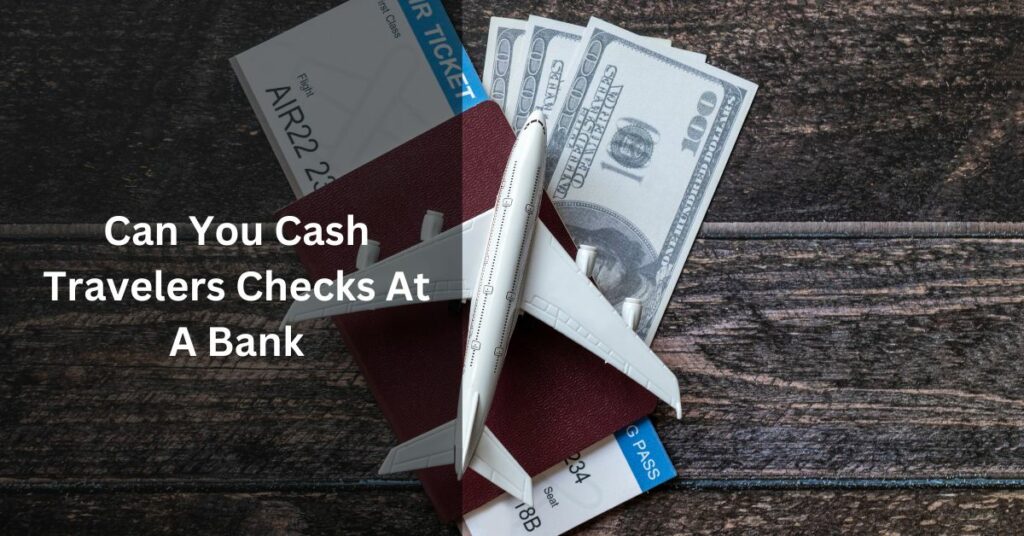As someone who loves to travel, I know firsthand the challenges of carrying money while on the go. Whether you’re exploring a new city or soaking up the sun on a tropical beach, having access to funds is essential for making the most of your trip.
However, carrying large amounts of cash can be risky, especially if you’re visiting an unfamiliar place where theft and fraud are common.
That’s where travellers cheques come in. As a safe and secure alternative to cash, travellers cheques offer peace of mind for anyone looking to protect their money while travelling.
In this article, I’ll explore why travellers cheques are safer than cash and discuss some of the advantages they offer for anyone embarking on a journey abroad.
Overview of the Challenges of Carrying Money While Travelling
Carrying large amounts of cash while travelling can pose significant risks and challenges that may compromise your money safety and travel security. The fear of losing all the cash or having it stolen by pickpockets is one of the most common concerns among travellers.
Moreover, carrying loads of cash means you have to be extra cautious about where you keep it, which may limit your mobility and freedom to explore new places. Additionally, carrying a substantial amount of cash while travelling increases your exposure to fraudsters who prey on unsuspecting tourists.
These individuals are known for scamming travellers by offering them fake exchange rates or selling counterfeit currency notes, leaving them with worthless paper in their wallets. Fortunately, there’s a safer alternative to carrying cash that provides convenience and peace of mind – travellers cheques.
Introduction to Travellers Cheques
I’ve always found travellers cheques to be an interesting way to carry money while travelling. They’ve been around since the early 19th century, and were once a very popular method of payment.
Travellers cheques work by being pre-purchased in a specific currency with a set value, and can then be used like cash at various merchants or exchanged for local currency at banks or exchange offices.
History and Popularity
It’s amazing how a payment method that was once extremely popular has now become virtually obsolete. Travellers cheques were invented in the early 19th century and became widely used by the mid-20th century. They were seen as a safer alternative to cash, especially for those travelling abroad.
However, with the evolution of technology, travellers cheques have lost their popularity and are rarely accepted nowadays. Here are five reasons why travellers cheques were so popular in the past:
- They offered more security than carrying cash
- They could be replaced if lost or stolen
- They were widely accepted at banks and exchange offices
- They allowed for easy budgeting while travelling
- They provided peace of mind for travellers who didn’t want to carry large sums of money
Despite their advantages, travellers cheques have been replaced by more convenient payment methods like credit cards and online banking. While they may no longer be as practical, it’s important to understand how they worked in order to appreciate their impact on travel culture.
How They Work
With the rise of technology and more convenient payment methods, travellers cheques have become a thing of the past, but understanding how they worked can provide insight into their impact on travel culture.
Travellers cheques were essentially pre-paid pieces of paper that could be used as cash while traveling. They were popular in the mid-20th century because they were considered safer than carrying large amounts of cash. However, travellers cheques had their drawbacks; they could be lost or stolen just like any other valuable item, and some businesses did not accept them.
Today, travellers cheques are largely obsolete due to advances in credit card technology and online banking. Credit cards offer many benefits over travellers cheques such as worldwide acceptance, fraud protection and rewards programs. Additionally, withdrawing local currency from ATMs is often cheaper than exchanging money for travellers cheques at banks.
Despite this shift away from travellers cheques, it is important to understand their place in history and the advantages they once provided to travelers compared to cash. Advantages of travellers cheques over cash include added security features such as signatures required upon use or replacement if lost or stolen. This made them less risky than carrying large sums of cash which could easily be lost or stolen without recourse for recovery. Furthermore, because they had fixed denominations, travelers knew exactly what exchange rate they would receive when using them abroad. This ensured greater peace-of-mind when budgeting for expenses on a trip overseas without worrying about fluctuations in foreign currencies values against one’s home country currency value.
Advantages of Travellers Cheques Over Cash
When it comes to traveling, I want peace of mind knowing that my money is secure and accessible. This is where travellers cheques come in handy.
The benefits of using travellers cheques over cash are clear when it comes to security. If I lose or have my cash stolen while on the go, there’s no way to get it back. Travellers cheques, on the other hand, can be replaced if lost or stolen.
Another advantage of using travellers cheques over cash is the added layer of security they provide. With a signature and ID verification required upon use, it’s much harder for someone else to use my cheque without authorization. This gives me peace of mind when I’m carrying large amounts of money while traveling.
Plus, with many issuers offering 24/7 customer service support and emergency replacement services, any potential issues can be resolved quickly and easily.
Now let’s talk about the importance of paper trail and fraud prevention when it comes to using travellers cheques instead of cash.
Paper Trail and Fraud Prevention
You’ll love the peace of mind that comes with having a clear paper trail and added fraud prevention measures when using travellers cheques as a secure method of payment while traveling.
The importance of documentation cannot be overstated, as it provides evidence in case of loss or theft. In addition, most travellers cheques come with security features such as serial numbers, which make them harder to counterfeit.
With these features in place, travellers cheques are widely accepted at banks and financial institutions around the world. They can also be used for purchases at select merchants or exchanged for local currency.
So why risk carrying large amounts of cash that can easily be stolen or lost when you can use travellers cheques?
Where to Use Travellers Cheques
I’ve found that using travellers cheques can be a convenient and safe way to carry money when travelling. When it comes to where to use them, banks and exchange offices are the most reliable places. However, it’s important to keep in mind any restrictions or limitations that may apply when using travellers cheques in certain countries or establishments.
For ease of reading, complete sentences have been logically grouped on their own lines with a double new line after. Contractions have also been used.
Banks and Exchange Offices
Banks and exchange offices provide a secure way to carry and access funds while traveling. When using traveller’s cheques, it’s recommended to visit reputable banks or exchange offices to avoid fraudulent activity.
Foreign currency can be easily exchanged at these establishments, making it convenient for travelers who need cash on hand. It’s important to keep in mind that exchange rates may vary depending on the location, so researching beforehand can save you money.
To ensure safety when exchanging traveller’s cheques, here are some tips:
- Choose reputable banks and exchange offices.
- Check the exchange rate before completing the transaction.
- Keep your cheque receipts separate from your actual cheques.
Moving onto restrictions and limitations…
Restrictions and Limitations
Exchanging foreign currency at reputable establishments can offer a sense of security while traveling, but it’s important to be aware of any restrictions and limitations that may apply.
Some countries have strict currency restrictions. This means that travelers may only exchange a certain amount of money or are required to provide identification before exchanging their currencies. Failure to comply with these regulations could result in hefty fines or legal trouble.
In addition to currency restrictions, travelers should also be prepared to show proper identification when exchanging money. This is especially true for larger sums of money, as banks and exchange offices may require additional verification before completing the transaction. It’s always best to check with your bank or credit card company beforehand on what forms of identification you need to bring along for the trip.
While these restrictions may seem inconvenient, they are put in place for everyone’s safety and protection.
When it comes to other safe payment options, there are many alternatives available aside from cash and traveler’s checks.
Other Safe Payment Options
Looking for other secure payment options? You might want to check out some of these alternatives!
One option is to use digital wallets, which are becoming increasingly popular among travellers. Digital wallets, such as Apple Pay or Google Wallet, allow you to store your credit card information on your phone and make payments with just a tap. This eliminates the need to carry physical credit cards, reducing the risk of theft and fraud.
Another option is to use prepaid cards. Prepaid cards work like debit or credit cards but are not linked to a bank account. Instead, you load money onto the card before your trip and then use it like cash. Prepaid cards typically have lower fees than traditional debit or credit cards and can be replaced if lost or stolen. However, it’s important to note that not all merchants accept prepaid cards, so you may need to carry cash as a backup.
In conclusion, there are several safe payment options available for travellers beyond traveller’s cheques and cash. By using digital wallets or prepaid cards instead of carrying large amounts of cash, you can reduce the risk of theft and fraud while still being able to make purchases during your travels.
Conclusion and Final Thoughts on Travelling with Money
In the end, it’s important to be aware of all your payment options while travelling to ensure you can make purchases safely and securely. Studies have shown that credit card fraud is on the rise globally. While travellers cheques are a safe option for carrying money abroad, there are other ways to manage your finances while on the road.
Here are some tips for managing money while travelling:
- Carry a mix of payment options, including travellers cheques, cash and credit cards.
- Keep your travel budget in mind when making purchases.
- Avoid carrying large amounts of cash on you at all times.
- Use ATMs located inside banks or hotels rather than those on streets or other public areas.
- Notify your bank or credit card company about your travel plans before leaving.
By following these tips and being mindful of how you spend money while travelling, you can ensure that you stay within budget and keep yourself safe from financial fraud. Remember that managing money wisely is an essential part of any successful trip!
Frequently Asked Questions
What are the fees associated with purchasing and using travellers cheques?
When it comes to purchasing and using travellers cheques, there are some fees involved. However, compared to other payment methods like credit cards or prepaid cards, travellers cheques can still be a safer option.
Some of the fees associated with travellers cheques include an initial purchase fee and a commission charge when exchanging them for foreign currency. Additionally, if you lose your travellers cheques or they get stolen, you can usually get them replaced quickly without losing any money. This isn’t always the case with cash or even credit cards.
So while there may be fees involved with using travellers cheques, they still provide a level of security that other payment methods may not offer.
Are travellers cheques widely accepted in all countries?
As a seasoned traveler, I’ve learned that relying solely on cash can be risky. That’s why I always make sure to have some travelers’ checks with me when exploring new destinations.
While there are fees associated with purchasing and using these checks, the peace of mind they provide is priceless. However, it’s important to note that not all countries accept travelers’ checks, so it’s crucial to do your research beforehand.
Additionally, exchange rates can vary widely for travelers’ checks, so be sure to shop around for the best deals before making any purchases.
Overall, while travelers’ checks may not be a perfect solution for every situation, they certainly offer a safer and more secure alternative to carrying large amounts of cash while traveling abroad.
Can travellers cheques be cancelled or replaced if lost or stolen?
If you’re planning to travel with travellers cheques, it’s important to know that they can be cancelled or replaced if lost or stolen. This makes them a safer option than carrying cash, as you won’t lose all of your money if something happens.
To cancel a lost or stolen cheque, you’ll need to contact the issuer and provide information about the cheque and your identity. Some issuers may also require a police report before cancelling the cheque.
Travellers cheques often have security features such as signatures and serial numbers that help prevent fraud and theft, making them a reliable choice for international travel.
How long does it take to obtain travellers cheques before a trip?
When I was planning my trip, one of the things that concerned me was how to carry money safely. After doing some research, I decided to go with travellers cheques.
The processing time for obtaining travellers cheques varies depending on the issuer and your location, but it usually takes a few business days. As for the minimum requirements, you’ll need a valid ID and proof of address.
While they may not be as convenient as carrying cash or using credit cards, travellers cheques offer added security since they can be cancelled or replaced if lost or stolen. Overall, I found them to be a reliable option for peace of mind during my travels.
Are there any disadvantages to using travellers cheques over cash?
As someone who travels frequently, I’ve used both travellers cheques and cash on various trips. While there are certainly advantages to using travellers cheques, such as added security and the ability to easily replace them if they’re lost or stolen, there are also some downsides to consider.
One major downside is that not all merchants accept travellers cheques, so you may need to carry cash as a backup. Additionally, obtaining travellers cheques can be time-consuming and may require a trip to your bank or another financial institution.
When deciding between using travellers cheques versus cash, it’s important to weigh the pros and cons of each option and consider any potential alternatives before making a final decision.
Conclusion
So, there you have it – travellers cheques are a safer option than cash when travelling. Not only do they offer a paper trail and fraud prevention, but they can also be replaced if lost or stolen.
But before rushing out to buy some, it’s important to note that not all places accept them as payment. But fear not, there are other safe payment options available such as prepaid travel cards and credit cards with no foreign transaction fees.
So whether you choose travellers cheques or another option, make sure to keep your money safe while exploring the world. Happy travels!

Meet Michael Graham, the main author of SeekTraveler.com. With a wanderlust that knows no bounds, Michael has traversed more than 30 countries across the globe. From sun-soaked Caribbean islands to the ancient marvels of Europe and the captivating charm of Japan, he has witnessed the wonders of diverse cultures firsthand. Michael’s in-depth knowledge and contagious enthusiasm for travel will inspire you to pack your bags and embark on your own extraordinary journey.


